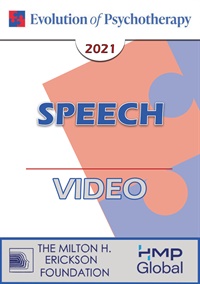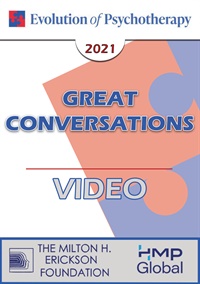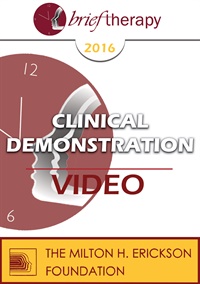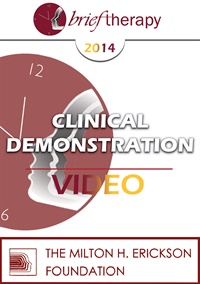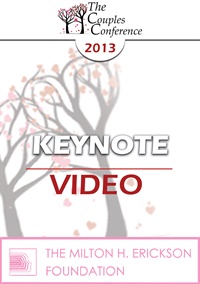- Average Rating:
- Not yet rated
- Topic Areas:
- Grief | Psychotherapy | Speeches
- Categories:
- Evolution of Psychotherapy | Evolution of Psychotherapy 2021
- Faculty:
- Donald Meichenbaum, PhD
- Course Levels:
- Master Degree or Higher in Health-Related Field
- Duration:
- 1 hour
- Format:
- Audio and Video
- Original Program Date:
- Dec 02, 2021
- Short Description:
- The COVID-19 pandemic has resulted in over 500,000 deaths. In the aftermath, Prolong and complicated grief affects about 20% of loved ones. This presentation will discuss how to treat such individuals.
- Price:
- $59.00 - Base Price
- Average Rating:
- Not yet rated
- Topic Areas:
- Great Conversations | Grief
- Categories:
- Evolution of Psychotherapy | Evolution of Psychotherapy 2021
- Faculty:
- Robert Neimeyer
- Course Levels:
- Master Degree or Higher in Health-Related Field
- Duration:
- 1 hour
- Format:
- Audio and Video
- Original Program Date:
- Dec 01, 2021
- Short Description:
- When people face the reality of tragic loss through death, they commonly struggle to process both the "event story" of what has transpired, and to access the "back story" of the relationship with the deceased to negotiate the liminal sense of the loved one's presence within absence. This calls for creative and intuitive therapy that respects the profound assault on the person's world of meaning, but that uses the healing power of imagination, body work and the conjuring of restorative connections to promote resilience.
- Price:
- $59.00 - Base Price
Tags: Grief
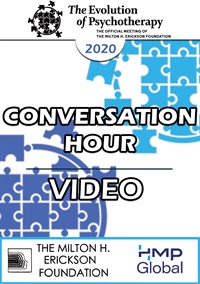
- Average Rating:
- Not yet rated
- Topic Areas:
- Gender | Sex and Sexuality | Conversation Hours | LGBTQ | Multicultural | Family Dynamics
- Categories:
- Evolution of Psychotherapy | Evolution of Psychotherapy 2020
- Faculty:
- Patricia Arredondo, EdD | Rick Miller, MSW
- Course Levels:
- Master Degree or Higher in Health-Related Field
- Duration:
- 1 hour
- Format:
- Audio and Video
- Original Program Date:
- Dec 12, 2020
- Short Description:
- This conversation explores the emotional, cultural, and relational terrain shared by gay sons and their mothers. Through lived stories and clinical reflection, it looks at acceptance, self-blame, religion, marginalization, and the long-term impact of support or silence on mental health. The exchange offers therapists a grounded, affirming lens for working with LGBTQ clients and families, especially where love, loyalty, and cultural norms collide.
- Price:
-
Sale is $29.00
price reduced from Base Price - $59.00
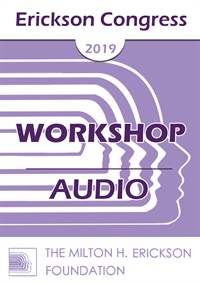
- Average Rating:
- Not yet rated
- Topic Areas:
- Workshops | Grief | Ericksonian Hypnosis and Therapy Techniques | Ericksonian Psychotherapy | Hypnosis | Psychotherapy | Aging and Mortality
- Categories:
- Erickson Congress | Erickson Congress 2019
- Faculty:
- Teresa Garcia-Sanchez, MA
- Duration:
- 1 hour 46 minutes
- Format:
- Audio Only
- Original Program Date:
- Dec 15, 2019
- Short Description:
- Loved ones leave us, couples and friends separate, we suffer physical changes as we grow up during adolescence and as we grow old, work changes happen, as well as our mood, which evolves throughout our lives.
- Price:
- $15.00 - Base Price
- Average Rating:
- Not yet rated
- Topic Areas:
- Clinical Demonstrations | Couples Therapy | Therapist Techniques
- Categories:
- Brief Therapy Conference | Brief Therapy Conference 2016 | Pioneers in Couples and Family Therapy
- Faculty:
- Stan Tatkin, PsyD, MFT
- Course Levels:
- Master Degree or Higher in Health-Related Field
- Duration:
- 1:00:11
- Format:
- Audio and Video
- Original Program Date:
- Dec 10, 2016
- Short Description:
- This clinical demonstration showcases the "Crossing" method for couples therapy, using psychobiological strategies to guide partners toward secure functioning. Through the case of a grieving couple, it illustrates how to interpret non-verbal cues, address unspoken needs, and build mutual support. The session offers practical tools to help couples operate as a unified psychological system, regardless of attachment style.
- Price:
-
Sale is $29.00
price reduced from Base Price - $59.00
- Average Rating:
- Not yet rated
- Topic Areas:
- Clinical Demonstrations | Grief | Brief Therapy
- Categories:
- Brief Therapy Conference | Brief Therapy Conference 2014
- Faculty:
- Steve Andreas, MA, NLP
- Course Levels:
- Master Degree or Higher in Health-Related Field
- Duration:
- 54:20
- Format:
- Audio and Video
- Original Program Date:
- Dec 13, 2014
- Short Description:
- Most “grief work” involves expressing grief fully, or saying “goodbye” to the lost person, neither of which resolves the feeling of loss. Full resolution reconnects with the treasured felt experience of the lost person, using it as a positive resource to move forward and reengage the world in the present.
- Price:
-
Sale is $29.00
price reduced from Base Price - $59.00
- Average Rating:
- Not yet rated
- Topic Areas:
- Keynotes | Family Therapy | Couples Therapy | Aging and Mortality
- Categories:
- Couples Conference | Couples Conference 2013
- Faculty:
- Janis Abrahms Spring, PhD, ABPP
- Course Levels:
- Master Degree or Higher in Health-Related Field
- Duration:
- 47:07
- Format:
- Audio and Video
- Original Program Date:
- Apr 21, 2013
- Short Description:
- This keynote offers a moving, often funny, and deeply honest look at what it means to care for an aging parent or partner. Drawing on personal stories and clinical insight, it explores caregiver exhaustion, guilt, sibling conflict, end-of-life decisions, and the emotional whiplash of loving someone who is fading. Participants hear practical ways to set boundaries, honor complex feelings, locate moments of grace, and repair unfinished business so that caregiving becomes not just a burden but a meaningful act of connection and dignity.
- Price:
-
Sale is $29.00
price reduced from Base Price - $59.00

- Average Rating:
- Not yet rated
- Topic Areas:
- Short Courses | Attachment | Ericksonian Hypnosis and Therapy Techniques | Family Therapy | Blended Families
- Categories:
- Brief Therapy Conference | Brief Therapy Conference 2012
- Faculty:
- Dale Bertram, PhD | Mike Rankin, MA
- Duration:
- 1:23:09
- Format:
- Audio Only
- Original Program Date:
- Dec 09, 2012
- Short Description:
- Blending stepfamilies takes more than rules and structure. In this thoughtful and story-rich session, Bertram and Rankin explore how Ericksonian principles such as utilization, reframing, cooperation, and working with resistance can help families shift perspective and build secure attachment. Through clinical examples and dialogue, they show how honoring loyalty binds, slowing the process, and strengthening the couple bond can transform conflict into connection and help stepfamilies become true communities.
- Price:
- $15.00 - Base Price
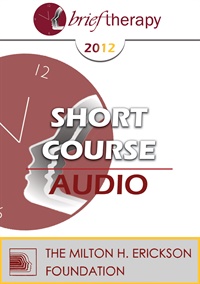
- Average Rating:
- Not yet rated
- Topic Areas:
- Trance | Short Courses | Humor | Hypnosis
- Categories:
- Brief Therapy Conference | Brief Therapy Conference 2012
- Faculty:
- Betty Blue, PhD
- Duration:
- 1:20:15
- Format:
- Audio Only
- Original Program Date:
- Dec 05, 2012
- Short Description:
- Compassionate playfulness becomes the centerpiece of this experiential and deeply personal session. Betty Blue weaves Ericksonian principles, neuroscience, mirror neurons, oxytocin, and the work of Daniel Siegel and the Rossis into a practical vision of how lightness can interrupt learned helplessness and restore vitality. Through story, metaphor, guided exercises, and candid reflection on her own diagnosis, she shows how playful connection can soften suffering, activate resilience, and invite both therapist and client into a shared, transformative trance.
- Price:
- $15.00 - Base Price

- Average Rating:
- Not yet rated
- Topic Areas:
- Short Courses | Reframing | Neuroscience | Humor | Hypnosis
- Categories:
- Erickson Congress | Erickson Congress 2011
- Faculty:
- Betty Blue, PhD
- Duration:
- 1:04:41
- Format:
- Audio Only
- Original Program Date:
- Dec 09, 2011
- Short Description:
- Playfulness becomes a clinical strategy in this experiential and deeply personal session. Drawing from Ericksonian hypnosis, neuroscience, attachment, and her own family losses, Blue shows how humor, role-play, metaphor, and shared activity can interrupt despair and activate new neural pathways. Through demonstrations and audience exercises, she reframes play as a form of trance, connection, and resilience that helps clients move through grief, anxiety, and darkness without losing vitality.
- Price:
- $15.00 - Base Price
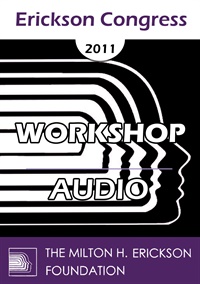
- Average Rating:
- Not yet rated
- Topic Areas:
- Psychotherapy | Grief | Workshops | Post-Traumatic Stress Disorder (PTSD) | Trauma
- Categories:
- Erickson Congress | Erickson Congress 2011
- Faculty:
- Woltemade Hartman, PhD
- Duration:
- 1 hour
- Format:
- Audio Only
- Original Program Date:
- Dec 07, 2011
- Short Description:
- Traditional intervention strategies to overcome traumatic grief reactions have in the past failed to achieve successful treatment outcomes. Dysregulation of affect and other central symptoms of acute stress disorder and PTSD are often the result of dissociative reactions to cope with the traumatic loss. This workshop will focus on grief as a resource, methods to facilitate the containment and transmutation of negative affect and how to integrate the deceased as an internal resource.
- Price:
- $20.00 - Base Price
Tags: Grief Psychotherapy PTSD Trauma
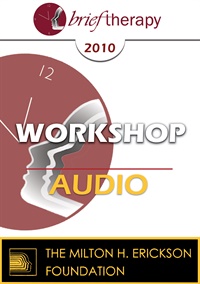
- Average Rating:
- Not yet rated
- Topic Areas:
- Attachment | Couples Therapy | Neuroscience | Workshops | Developmental Therapy Model | Differentiation
- Categories:
- Brief Therapy Conference | Brief Therapy Conference 2010 | Pioneers in Couples and Family Therapy
- Faculty:
- Ellyn Bader, PhD
- Duration:
- 1:54:30
- Format:
- Audio Only
- Original Program Date:
- Dec 12, 2010
- Short Description:
- The workshop delves into couples therapy by integrating attachment theory, differentiation, and neuroscience. Participants learn about relationship developmental stages, attachment styles, and conflict resolution techniques like the "ouch" method. The session explores challenges with different couple types, gender dynamics, and personal histories, using case studies to demonstrate how self-disclosure, addressing unresolved issues, and differentiation-based approaches can help couples develop deeper emotional connections and personal growth.
- Price:
- $15.00 - Base Price
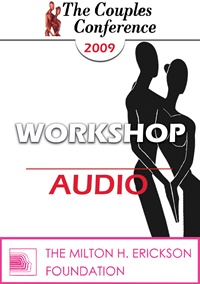
- Average Rating:
- Not yet rated
- Topic Areas:
- Workshops | Affairs | Couples Therapy | Trauma | Healing
- Categories:
- Couples Conference | Couples Conference 2009
- Faculty:
- Janis Abrahms Spring, PhD, ABPP
- Duration:
- 1:39:23
- Format:
- Audio Only
- Original Program Date:
- May 02, 2009
- Short Description:
- This workshop breaks down what actually happens to a couple in the aftermath of an affair, giving therapists a detailed map of the hurt partner’s shock, hyperarousal, numbness and cascade of psychological losses. It contrasts these reactions with the unfaithful partner’s relief, confusion and impatience, then shows how to help both partners speak honestly, manage secrets, and make grounded decisions about staying together. Participants also learn how trust is slowly rebuilt through steady presence, transparent repair and the unfaithful partner’s willingness to initiate conversations about the injury.
- Price:
- $15.00 - Base Price
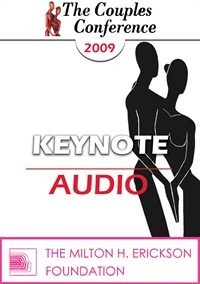
- Average Rating:
- Not yet rated
- Topic Areas:
- Keynotes | Couples Therapy | Forgiveness | Pain and Healing
- Categories:
- Couples Conference | Couples Conference 2009
- Faculty:
- Janis Abrahms Spring, PhD, ABPP
- Duration:
- 57:47
- Format:
- Audio Only
- Original Program Date:
- May 01, 2009
- Short Description:
- This keynote offers a clear, humane rethinking of forgiveness, distinguishing genuine repair from pressure to “just let it go.” Through vivid stories and clinical examples, it shows why forgiveness must be earned through accountability, empathy and meaningful change, and why “acceptance” is often the healthier path when offenders can’t or won’t make amends. Participants learn how interpersonal injuries are healed, how partners can rebuild trust, and how self-respect, clarity and resilience guide the choice to forgive—or not.
- Price:
- $15.00 - Base Price
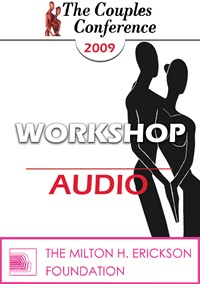
- Average Rating:
- Not yet rated
- Topic Areas:
- Workshops | Attachment | Couples Therapy | Developmental Therapy Model | Differentiation
- Categories:
- Couples Conference | Couples Conference 2009 | Pioneers in Couples and Family Therapy
- Faculty:
- Ellyn Bader, PhD
- Duration:
- 1:19:52
- Format:
- Audio Only
- Original Program Date:
- May 01, 2009
- Short Description:
- Learn how attachment, differentiation, and neuroscience intersect to help couples overcome communication barriers, manage conflicts, and grow together. Discover practical techniques like the "ouch" method to de-escalate tensions and support partners in developing deeper understanding and authentic connection.
- Price:
- $15.00 - Base Price
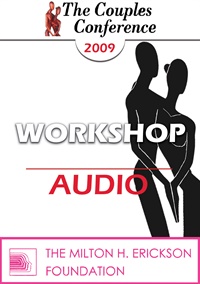
- Average Rating:
- Not yet rated
- Topic Areas:
- Workshops | Forgiveness | Couples Therapy | Pain and Healing
- Categories:
- Couples Conference | Couples Conference 2009
- Faculty:
- Janis Abrahms Spring, PhD, ABPP
- Duration:
- 2:00:49
- Format:
- Audio Only
- Original Program Date:
- May 01, 2009
- Short Description:
- This workshop offers a clear, empowering alternative to forgiveness when an offender cannot or will not make amends. Participants learn a structured model of **acceptance**, a self-healing process that helps people release obsession, understand the offender’s behavior without excusing it, protect their own dignity, and move forward without living in resentment. Through stories, clinical examples, and ten practical steps, the session shows how acceptance restores agency, reduces self-blame, and creates the option of reconciliation only when it is safe and genuinely earned.
- Price:
- $15.00 - Base Price
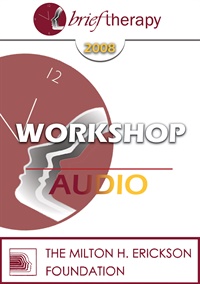
- Average Rating:
- Not yet rated
- Topic Areas:
- Workshops | Post-Traumatic Stress Disorder (PTSD) | Brief Therapy | Clinical Demonstrations
- Categories:
- Brief Therapy Conference | Brief Therapy Conference 2008
- Faculty:
- Steve Andreas, MA, NLP
- Duration:
- 2:47:11
- Format:
- Audio Only
- Original Program Date:
- Dec 14, 2008
- Short Description:
- This extended workshop offers a practical, step-by-step approach to resolving trauma, phobias, and shock memories without re-exposure or detailed content analysis. Through live demonstrations and careful attention to internal imagery, posture, and sensory processing, it shows how dissociation, perspective shifts, and simple experiential interventions can quickly reduce emotional charge and restore choice, even with long-standing or repeated trauma.
- Price:
- $15.00 - Base Price
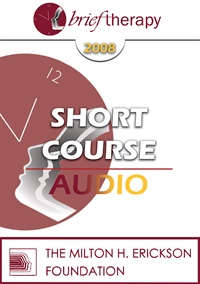
- Average Rating:
- Not yet rated
- Topic Areas:
- Short Courses | Aging and Mortality | Brief Therapy | Grief | Relationships
- Categories:
- Brief Therapy Conference | Brief Therapy Conference 2008
- Faculty:
- Kevin Humphrey, MA | Allan Sargent | Marilyn Sargent
- Duration:
- 1:19:57
- Format:
- Audio Only
- Original Program Date:
- Dec 11, 2008
- Short Description:
- Often, "oh, no!" is the first response to loss, be it a wallet, loved one, or dream. Something is gone. What happens next? One could get mired in cultural expectations that there must be denial, anger, depression - or, one can flow through the natural grief sequence to understanding, having appropriate emotions and being proactive. Learn how to get back into balance processing grief with nature's intention - having loving and healthy connections.
- Price:
- $15.00 - Base Price
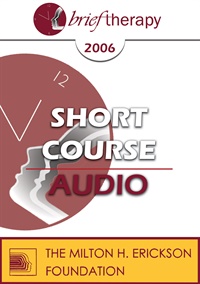
- Average Rating:
- Not yet rated
- Topic Areas:
- Short Courses | Aging and Mortality | Brief Therapy
- Categories:
- Brief Therapy Conference | Brief Therapy Conference 2006
- Faculty:
- Norma Barretta, PhD | Phillip Barretta, MA, MFT
- Duration:
- 1:18:31
- Format:
- Audio Only
- Original Program Date:
- Dec 07, 2006
- Short Description:
- This short course explores how brief, strength-based psychotherapy can support healthy aging, longevity, and quality of life in later years. Participants examine how humor, activity, social connection, and meaning-making protect against depression, isolation, and decline, even in the presence of illness or loss. The session blends clinical insight, real-world examples, and practical strategies for working with older adults, couples, and families, offering therapists concrete ways to promote resilience, engagement, and dignity across the aging process.
- Price:
- $15.00 - Base Price
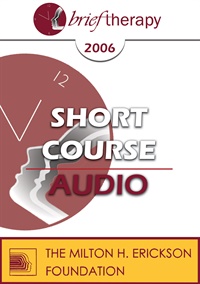
- Average Rating:
- Not yet rated
- Topic Areas:
- Short Courses | Aging and Mortality | Brief Therapy
- Categories:
- Brief Therapy Conference | Brief Therapy Conference 2006
- Faculty:
- Marilia Baker, MSW
- Duration:
- 1:40:17
- Format:
- Audio Only
- Original Program Date:
- Dec 07, 2006
- Short Description:
- This short course invites therapists to reflect on midlife as a turning point rather than a crisis. Through personal stories, audience dialogue, and Jungian-informed themes, it explores identity shifts, loss, vitality, aging, and the search for meaning as outer roles change and inner questions grow louder. The session offers a thoughtful, experience-near way to understand midlife transitions in both clients and clinicians, with an emphasis on resilience, generativity, and living more consciously into the second half of life
- Price:
- $15.00 - Base Price
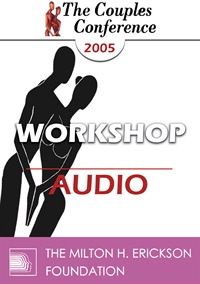
- Average Rating:
- Not yet rated
- Topic Areas:
- Workshops | Affairs | Couples Therapy | Trauma
- Categories:
- Couples Conference | Couples Conference 2005
- Faculty:
- Janis Abrahms Spring, PhD, ABPP
- Duration:
- 1:55:56
- Format:
- Audio Only
- Original Program Date:
- Mar 04, 2005
- Short Description:
- This workshop offers a framework for guiding couples through the trauma and confusion that follow an affair. Blending clinical insight with personal narrative, it explains the hurt partner’s destabilizing losses, the unfaithful partner’s ambivalence and idealization, and the powerful forces that drive both obsession and romantic love. Participants learn a three stage model for naming trauma, making thoughtful decisions about the future, and rebuilding trust through accountability, truth telling, and meaningful behavioral change.
- Price:
- $15.00 - Base Price
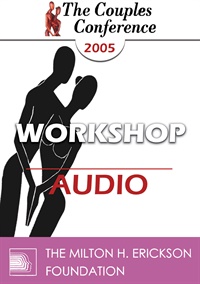
- Average Rating:
- Not yet rated
- Topic Areas:
- Workshops | Couples Therapy | Intimacy | Forgiveness | Healing
- Categories:
- Couples Conference | Couples Conference 2005
- Faculty:
- Janis Abrahms Spring, PhD, ABPP
- Duration:
- 1:59:31
- Format:
- Audio Only
- Original Program Date:
- Mar 04, 2005
- Short Description:
- This workshop presents an in depth, practical model of “acceptance,” a healing alternative when an offender cannot or will not make amends. Participants learn how hurt parties can honor their emotions, reduce obsessive rumination, protect themselves from further harm, and see the offender’s behavior in a broader context without excusing it. Through vivid clinical examples, the session offers a step by step roadmap for resolving injury, reclaiming dignity and moving forward even when genuine forgiveness is not possible.
- Price:
- $15.00 - Base Price

- Average Rating:
- Not yet rated
- Topic Areas:
- Short Courses | Belief Systems | Brief Therapy | Ericksonian Hypnosis and Therapy Techniques | Religion
- Categories:
- Erickson Congress | Erickson Congress 2004
- Faculty:
- Naji Abi-Hashem, PhD
- Duration:
- 1:19:45
- Format:
- Audio Only
- Original Program Date:
- Dec 02, 2004
- Short Description:
- This short course offers a thoughtful psychological look at fundamentalism, radicalization and the forces that fuel violence in troubled regions. Blending cultural analysis with clinical insight, the presenter traces how fear, identity loss, trauma and rigid belief systems can pull individuals and groups toward extremism. Participants learn ways to understand these dynamics without reducing them to stereotypes and how clinicians can foster dialog, moderation, dignity and peacebuilding in communities shaped by conflict.
- Price:
- $15.00 - Base Price
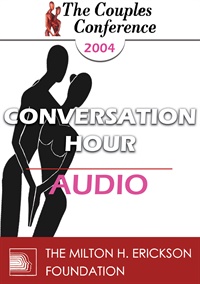
- Average Rating:
- Not yet rated
- Topic Areas:
- Conversation Hours | Couples Therapy | Grief
- Categories:
- Couples Conference | Couples Conference 2004
- Faculty:
- Jeffrey Zeig, PhD
- Duration:
- 1:00:29
- Format:
- Audio Only
- Original Program Date:
- Mar 27, 2004
- Short Description:
- CC04 Conversation Hour 02 - Couples and Grief - Jeffrey Zeig, Ph.D.
- Price:
- $15.00 - Base Price
Tags: Couples Therapy Grief
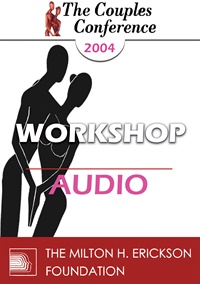
- Average Rating:
- Not yet rated
- Topic Areas:
- Workshops | Affairs | Couples Therapy | Trauma | Intimacy
- Categories:
- Couples Conference | Couples Conference 2004
- Faculty:
- Janis Abrahms Spring, PhD, ABPP
- Duration:
- 1:52:35
- Format:
- Audio Only
- Original Program Date:
- Mar 26, 2004
- Short Description:
- This workshop offers a clear, compassionate roadmap for helping couples recover from infidelity. Using a three stage model, it shows how to name the trauma of discovery, understand the unfaithful partner’s experience and make thoughtful, not impulsive, decisions about reconciliation. Participants learn concrete ways to rebuild trust, address romantic and unrequited love, challenge unrealistic beliefs about marriage and guide partners toward more mature, intentional connection.
- Price:
- $15.00 - Base Price


